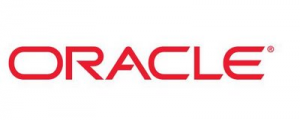Proposed amendments to VAT Act from 2011
26.07.2010Company: Amcham
The Ministry of Finance has prepared a rather extensive technical amendment to the VAT Act, effective as of 1 January 2011. The proposed amendment is being discussed in the interdepartmental comment procedure now. We expect a stormy discussion and changes in its wording to take place with regard to some points, in particular the planned measures against tax evasion. We will keep you informed about the course of the legislative procedure.
The most important proposed points are summarised below:
Customer’s joint and several liability for paid tax
If a new institute of liability for tax was introduced, the recipient of taxable supply would be liable for tax unpaid by the supplier in some cases.
Liability would be applied if the recipient knew, or should and could have known, that the tax would not be paid on purpose. This assumption would be fulfilled whenever the agreed price differed from the fair market price without any economic foundation. As a result of the non-existence of a uniform procedure among the EU member states, liability would be applied only to transactions between two payers with their place of taxable supply in the Czech Republic.
Reverse charge system also applicable to construction work in the Czech Republic
Another tool to reduce tax frauds should be extending the mode of transferring tax liability to a recipient with the following taxable supplies: waste delivery, emission allowances trading, the provision of construction and assembly work, and delivery of petrol and oil in an amount exceeding 1,500 litres per delivery.
The Czech Republic is applying for an exception for petrol and oil as the European legislation does not allow such a measure to be introduced for fuels.
The reverse charge system would naturally apply only to customers – persons liable to tax, i.e. simply to businesses.
Possibility of correcting VAT in claims from debtors in insolvency proceedings
Relief in the VAT area for unpaid claims is available in different forms in half of the EU member states. In the Czech Republic, because of the risk of misuse and impacts on the national budget, this measure should be limited only to claims from debtors in insolvency proceedings.
Provided that other conditions are met, the supplier (creditor) could correct the VAT paid and claim it in a tax return, and the customer (debtor) would be obliged to pay the interest originally claimed on this taxable supply back to the Tax Authority.
Tax adjustment document
The proposal introduces a tax adjustment document as the basic document for adjusting the tax base and the tax amount, i.e. the designations of tax credit and debit notes are omitted.
It also introduces an obligation to issue a tax adjustment document not only if the whole or a part of a taxable supply is cancelled or returned (see Newsletter 03/10 and the Ministry of Finance’s standpoint), but also if the price is reduced under the agreed conditions after the date of the taxable supply (today, a supplier only has an option, and not obligation, to adjust the tax base and amount). For simpler administration, in the event of a price reduction, documents not containing VAT, but only a discount without VAT (so-called “financial credit notes”), are often used now if a supplier does not have to record the date of delivery.
Sale of real estate also subject to tax three years later
The proposal allows tax to be imposed on a transfer of real estate even after a three-year period for exemption. Today, no such option exists.
At the same time, however, a transfer would have to be subject to taxation if the input tax deduction was claimed.
Formal elements of an invoice
The proposal introduces stricter conditions for claiming a tax deduction. If a customer fails to provide an invoice or provides an invoice lacking the formal elements (e.g. the tax identification number is missing), proving the right to claim VAT only by other means of evidence or by an incomplete invoice will become impossible.
Besides the above-mentioned bill amending the VAT Act, we would also like to inform you of the following issue:
Favourable standpoint of the Ministry of Finance – VAT for benefits paid by employers is tax-deductible
The issue concerning VAT for employee benefits in terms of income tax has been closed in the Coordination Committee of the Chamber of Tax Advisors and the Ministry of Finance of the Czech Republic.
If an employer provided an employee with a vehicle for both business and private purposes free of charge, and paid VAT on a part of the price of the vehicle and other costs related to its private use, such VAT was not, according to the Ministry of Finance’s former standpoint, tax-deductible.
The Ministry of Finance has changed this standpoint, referring to the amended Labour Code and the follow-up changes in the Income Tax Act beginning in 2007. According to the Ministry, the tax base can be reduced by these expenses, provided that the provision of Section 24 (2) (j) (5) of the Income Tax Act is fulfilled, i.e. if employee rights arising from a collective agreement, internal regulation, or employment or other agreement are concerned.
For more information concerning the issues above, please do not hesitate to contact us.
Jaromír ZBROJ, Head of TACOMA Tax
Tel: +420 731 411 268
E-mail:
jaromir.zbroj@tacoma.eu
www.tacoma.eu







